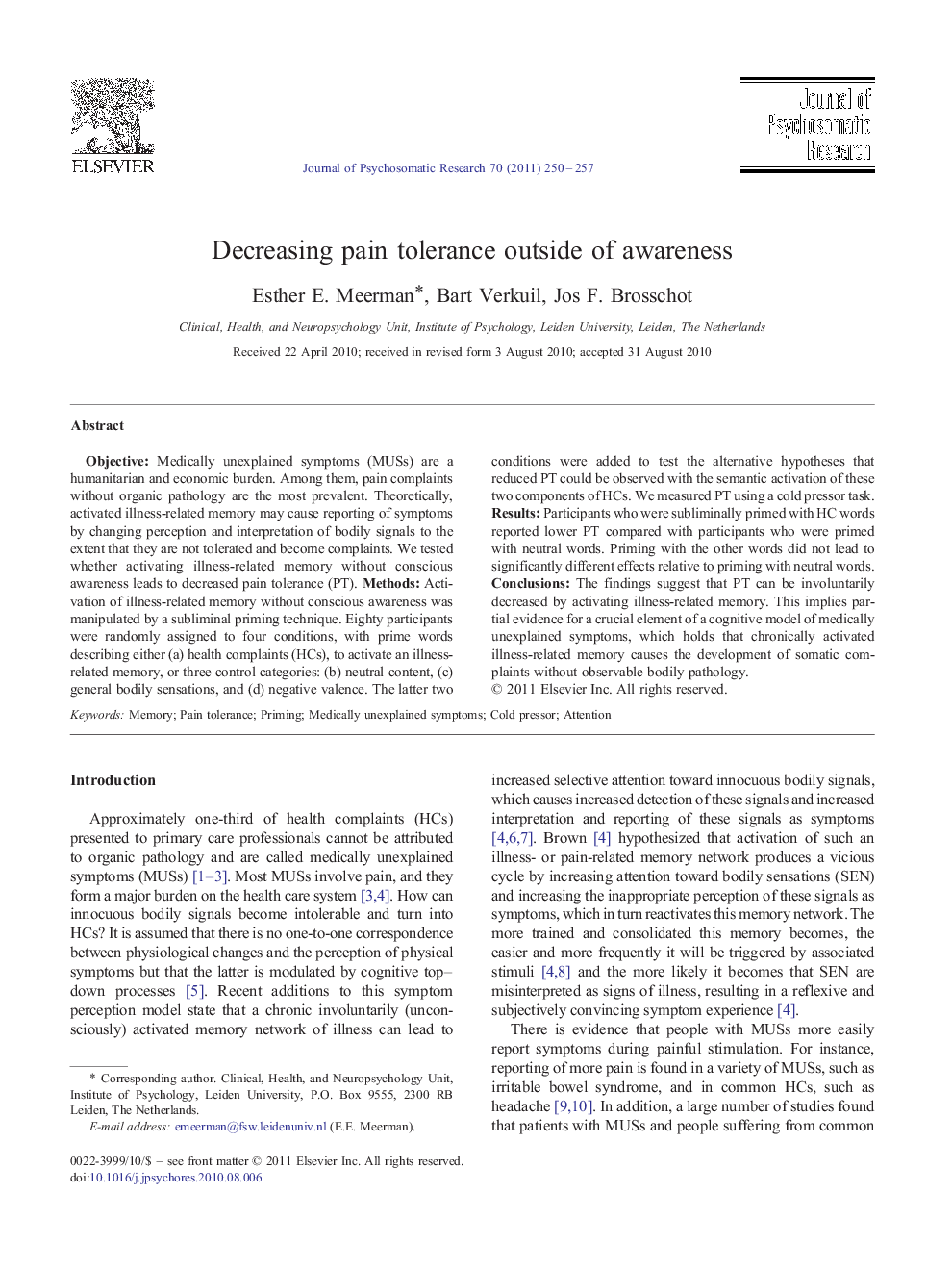| Article ID | Journal | Published Year | Pages | File Type |
|---|---|---|---|---|
| 949861 | Journal of Psychosomatic Research | 2011 | 8 Pages |
ObjectiveMedically unexplained symptoms (MUSs) are a humanitarian and economic burden. Among them, pain complaints without organic pathology are the most prevalent. Theoretically, activated illness-related memory may cause reporting of symptoms by changing perception and interpretation of bodily signals to the extent that they are not tolerated and become complaints. We tested whether activating illness-related memory without conscious awareness leads to decreased pain tolerance (PT).MethodsActivation of illness-related memory without conscious awareness was manipulated by a subliminal priming technique. Eighty participants were randomly assigned to four conditions, with prime words describing either (a) health complaints (HCs), to activate an illness-related memory, or three control categories: (b) neutral content, (c) general bodily sensations, and (d) negative valence. The latter two conditions were added to test the alternative hypotheses that reduced PT could be observed with the semantic activation of these two components of HCs. We measured PT using a cold pressor task.ResultsParticipants who were subliminally primed with HC words reported lower PT compared with participants who were primed with neutral words. Priming with the other words did not lead to significantly different effects relative to priming with neutral words.ConclusionsThe findings suggest that PT can be involuntarily decreased by activating illness-related memory. This implies partial evidence for a crucial element of a cognitive model of medically unexplained symptoms, which holds that chronically activated illness-related memory causes the development of somatic complaints without observable bodily pathology.
